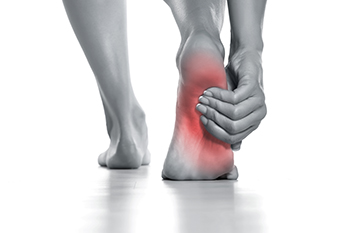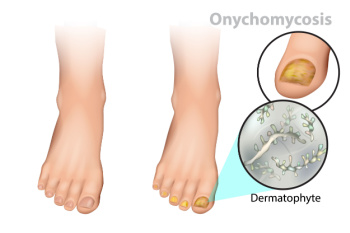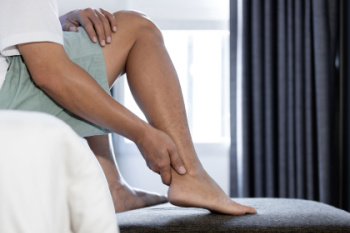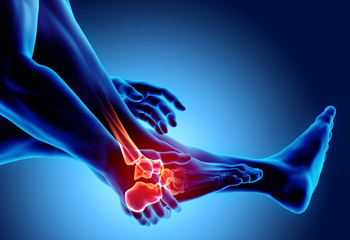
Heel pain can sometimes be traced to nerve compression, specifically when nerves in the heel become pinched between surrounding bones, ligaments, and connective tissue. This is known as medial and lateral plantar nerve entrapment. It can lead to nearly constant pain that worsens with activities like standing, walking, and running. High-impact activities and certain footwear can intensify the heel pain, making it challenging for people to perform daily tasks comfortably. Unlike other nerve issues, this type of entrapment typically does not cause burning or tingling. Instead it produces a more constant, deep ache. Diagnosis of this condition requires a thorough examination by a podiatrist, who may recommend supportive orthotic devices to stabilize the foot and alleviate pressure. Wearing splints can also help manage symptoms. In more severe cases, additional treatments like cryotherapy or surgery might be considered. If you are experiencing heel pain, it is suggested that you make an appointment with a podiatrist for a diagnosis, exam, and treatment options.
Many people suffer from bouts of heel pain. For more information, contact one of our doctors of New England Foot & Ankle . Our doctors can provide the care you need to keep you pain-free and on your feet.
Causes of Heel Pain
Heel pain is often associated with plantar fasciitis. The plantar fascia is a band of tissues that extends along the bottom of the foot. A rip or tear in this ligament can cause inflammation of the tissue.
Achilles tendonitis is another cause of heel pain. Inflammation of the Achilles tendon will cause pain from fractures and muscle tearing. Lack of flexibility is also another symptom.
Heel spurs are another cause of pain. When the tissues of the plantar fascia undergo a great deal of stress, it can lead to ligament separation from the heel bone, causing heel spurs.
Why Might Heel Pain Occur?
- Wearing ill-fitting shoes
- Wearing non-supportive shoes
- Weight change
- Excessive running
Treatments
Heel pain should be treated as soon as possible for immediate results. Keeping your feet in a stress-free environment will help. If you suffer from Achilles tendonitis or plantar fasciitis, applying ice will reduce the swelling. Stretching before an exercise like running will help the muscles. Using all these tips will help make heel pain a condition of the past.
If you have any questions please contact our offices located in Wakefield, MA, Nashua and Derry, NH . We offer the newest diagnostic and treatment technologies for all your foot and ankle needs.




